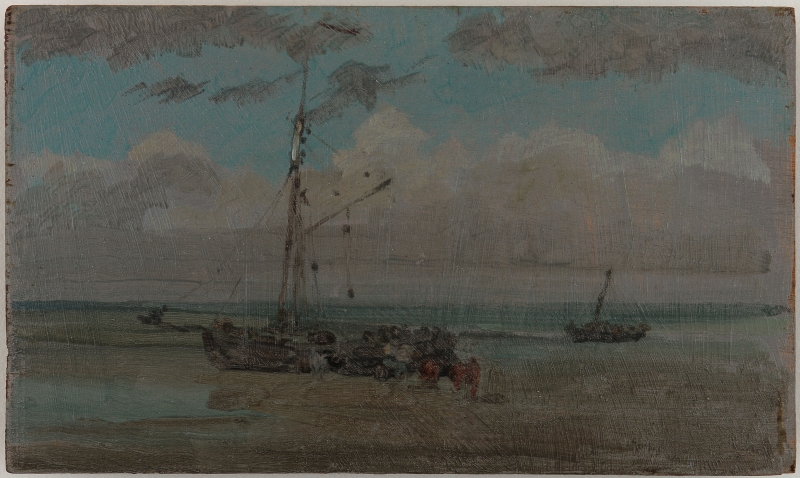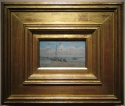Technique
It was thinly and freely painted, a fine brush being used for details like the rigging of the boats. The mast and rigging are almost drawn with free, long strokes of the brush. The colouring is subdued, but a stroke of white, near the top of the mast, provides a bright highlight. Individual brushstrokes are visible, the paint being of a creamy consistency, but in the thinner areas, the wood grain shows through adding, as the Freer website says 'tonal variations and texture.' 1
Conservation History
There was originally a faint butterfly signature at lower right but it has more or less disappeared. It is seen in the slightly black and white photograph reproduced above, taken under a very bright light.
The painting was, according to Freer Gallery files, cleaned and resurfaced in 1931, cleaned and varnished in 1937, and resurfaced in 1938, 1942 and 1952-53.
Frame
Small Dowdeswell frame, made for Whistler's one-man exhibition in 1884 [11.1cm]. 2
Last updated: 14th December 2020 by Margaret








